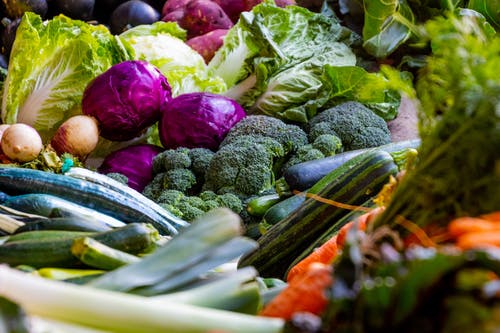Some think fresh, local produce is off the menu now that the warm growing season has passed. But there are several cold-hardy crops that last throughout the winter months.
“Cold season crops are those that are adapted to low temperatures—when you get to less than 50 degrees, they can thrive,” said Leonard Githinji, a sustainable and urban agriculture Virginia Cooperative Extension specialist and associate professor at Virginia State University.
Githinji explained that a variety of hardy fall and winter greens like arugula, broccoli, Brussels sprouts, collards, herbs, kale, lettuce and turnips can withstand temperatures as low as 30 degrees. And now is the ideal time to find them in local markets.
For some consumers, the chilly weather enhances the flavor of the produce.
“There are people who like (kale) when it has gone through that chilling—they think it tastes better and it’s more tender,” Githinji explained. “People like it better than when it’s harvested in early spring. The cold brings out the flavor more, and people love it.”
These crops’ hardiness also makes them ideal for storing ahead of holiday meals. Greens like kale and cabbage keep well in the refrigerator, and root vegetables like carrots, turnips, onions, potatoes and sweet potatoes can last for weeks if stored properly. Fall and winter squashes like acorn, butternut and delicata also are ideal for extended storage.
Many farmers use greenhouses, high tunnels and hoop houses to extend their growing seasons and protect their crops from the elements, allowing them to continue offering fresh, healthy produce to consumers at farmers markets.
“As colder temperatures set in, consumers can expect to find plenty of seasonal locally grown produce at their farmers market,” said Tony Banks, senior assistant director of agriculture, development and innovation for Virginia Farm Bureau Federation. “In addition to hardy winter crops, some markets will still have locally grown meat, poultry, fish and dairy products.”
And while many markets close down for the season, some extend their operations into the cold months.
“Produce selection can vary by market, so it’s a good idea to become acquainted with the farmers to learn what products they plan to have in the winter,” Banks added.
To find a seasonal farmers market near you, visit vdacs.virginia.gov/vagrown or vafma.org/virginia-markets.


